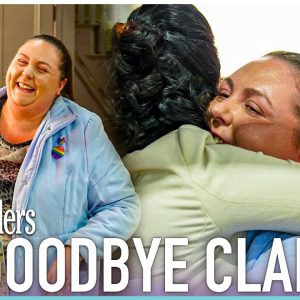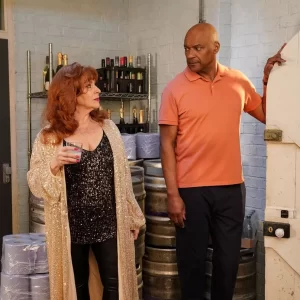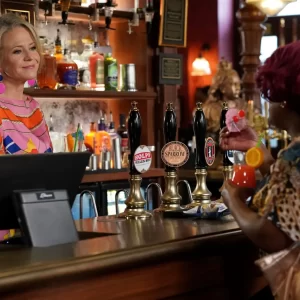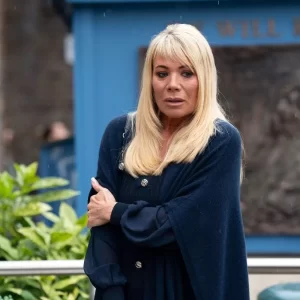It’s a day in Walford unlike any other. The atmosphere is heavy, emotions running high, and secrets bubbling to the surface. A tense
confrontation between two key characters sets the tone for the unfolding drama, as past betrayals and unspoken truths come to light.
“You really don’t want to go home today,” one character says, frustration and resentment dripping from their voice. It’s clear something darker
is beneath the surface, something unresolved. A brief moment of silence falls before they add, “Give me 5 minutes,” hinting at an urgency for closure or maybe just an attempt to stall the inevitable. But it’s too late for stalling—what’s about to come out can’t be held back any longer.
There’s mention of an old wound, literally and figuratively. One character accuses the other of trying to burn their skin with boiling water. It’s a shocking revelation, especially since the victim never reported it. This opens the door to even more painful memories, including the loss of a baby, a miscarriage that was never spoken about. It’s the first time the character is allowing themselves to release this painful secret, bringing years of silence to a heart-wrenching end. “I never told anybody,” they admit, the weight of those words hitting hard.
But there’s little time for sympathy. Another pressing matter looms—a meeting with the parole board. “So who killed him?” one character demands, referring to a past murder that has haunted the community for years. The other dodges the question, suggesting it wasn’t just them involved. “Keano, that was his name, wasn’t it?” The name strikes a nerve, bringing memories of a gruesome discovery—the body buried under the floorboards. It took three people to do it, they reveal. “How many did you need?” It’s chilling, the casual way they discuss such a horrific act.
The conversation takes a darker turn as they reflect on how quickly arguments can spiral out of control. “One minute there’s shouting, and the next, you’re staring at a body.” The line cuts deep, a reminder of how fragile life can be in Walford, where loyalty and betrayal dance hand in hand. One character admits they never saw the other as much of a “woman’s woman.” Loyalty to men had always defined their friendships, but now, it seems, that loyalty is breaking.
As the two characters circle each other, it’s clear that betrayal has left lasting scars. “We just turned on each other,” one says, reflecting on the fractured relationships that followed the killing. They’d tried to fix him—the man they killed—but it was impossible. “He loved no one but himself,” they confess, with a tone of bitter resignation. Everything they did, all the lies they told, were for someone who never cared for anyone else.
In the end, the conversation takes a more somber turn. “You did what you had to do,” one character says, trying to offer some comfort. “Maybe he got what he deserved.” There’s a hint of relief in these words, as if they’re trying to convince themselves that the murder was justified. But the past won’t let them go that easily.
The scene shifts to the present. There’s a parole board hearing coming up—a chance for one character to leave this all behind and start again. “Cancel the meeting with the governor,” one character pleads, urging the other to give it their best shot and fight for their freedom. “Go to that parole board, leave this place, and find the woman you were.”
It’s a bittersweet moment of hope, marred by years of guilt and regret. “19 years,” one character says wistfully, longing for the chance to taste freedom again. The smell of it lingers in the air, tantalizingly close.
As they make their way to the car, the sense of finality sets in. “Smell that?” one asks. “That smells like freedom.”





